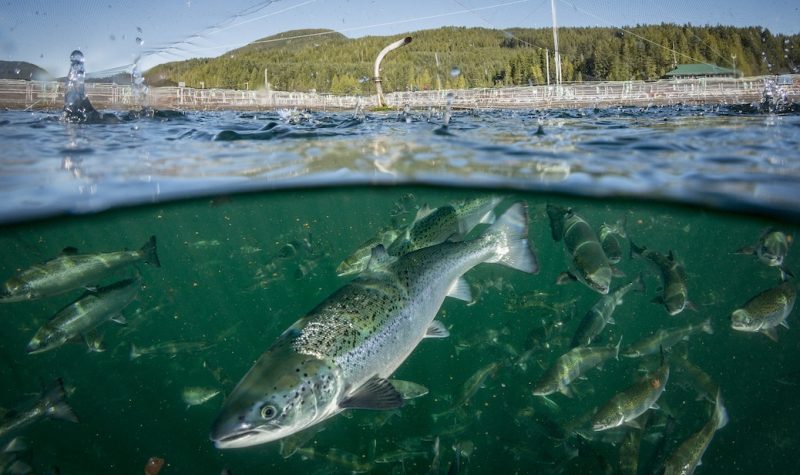By Roy L Hales
This is the second in what has turned out to be a series of interviews about the need for a plan to help the 1,500 fish farm workers who will allegebly be losing their jobs because of the decision to phase out fish farms in the Discovery Islands. Stan Proboszcz, Science Advisor with the Watershed Watch Salmon Society, is questioning the numbers.
Questioning the numbers
Are 1,500 people actually losing their jobs?
“I really do feel for the few people who are losing their jobs, but let’s do some math here,” stated Stan Proboszoz.
He suggests that, conservatively speaking, the actual number is probably closer to 300 (and possibly lower).
(Listen to his calculations in the podcast above.)
This raises the question of whether the closure would be a major economic blow to the region? Or a personal tragedy for the affected families?
After my interview with Proboszoz, someone from the BC Salmon Farmers Association said the 1,500 figure is a combination of direct and indirect jobs. The actual total is 1,498 and 672 of these are people directly employed on the Discovery Island fish farms.
Have jobs been lost because of fish farms?
“How many jobs have been lost because of … the parasites and diseases from fish farms?” asks Proboszcz.
Have fishermen lost their jobs?
What about negative impacts on the wild wilderness tourism and recreational fishing sectors?
“I can’t prove with 100% certainty that there have been jobs lost because of fish farms. It is tough to prove anything with 100% certainty. I would suggest that salmon farms are a contributing factor … There has been a fair bit of science that shows they contribute to wild salmon declines,” said Proboszoz.

From Fisheries and Oceans Canada’s update on the implementation of the Cohen Commission’s recommendations. Note: On Monday, Sept 28, the DFO announced that the Discovery Islands fish farms posed minimal risk to migrating wild salmon – but their analysis did not include sea lice.
Was the industry blindsided?
“I have heard that the industry was blindsided by this decision. People were surprised, shocked, but I just want to remind everyone that this isn’t a surprise. This was explicitly stated in recommendations from the Cohen Commission that was tabled eight years ago. One of the recommendations stated that the farms should be removed in 2020. Everyone knew that this was likely going to happen. I think it is a little irresponsible for the industry to suggest they were blind-sided. They should have been preparing for this a long time ago,” said Proboszoz.
Moving forward
As far as funding the retaining of fish farm workers who have lost their jobs, Proboszcz wondered if it could be part of a larger transition of the industry to on-land farms.
“I’m not sure of the best way forward, that’s not my area of expertise, but there are jurisdictions around the world that are moving forward with [land based fish farms]. There just seems to be this resistance, especially in Western Canada, to this technology. I think we need to change and perhaps they are starting to see the writing on the wall. Perhaps after this bitterness passes we’ll see that sort of transition. , … We are going to miss the boat if we don’t transition towards a more environmentally sustainable method of growing fish,” he said.
Further interviews
Cortes Currents will be interviewing someone from the BC Salmon Farmers Association this afternoon.
The mayor of Campbell River declined my invitation to be interviewed and I have reached out to a couple of the other mayors that told the DFO they wished to be consulted.
So far, none of the First Nations I emailed have responded.




